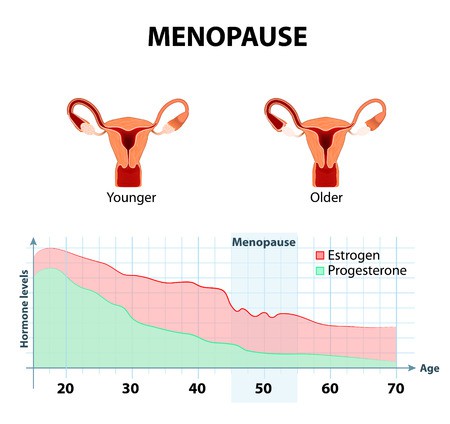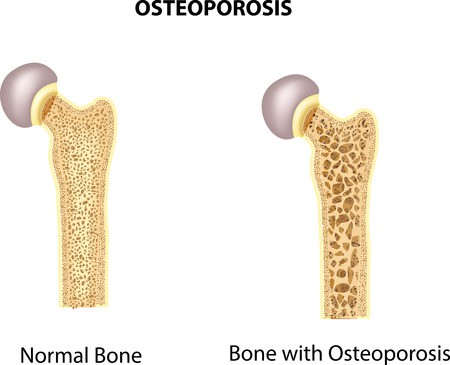The term “menopause” is referred, as a complete stoppage of the menstrual cycle for more than one year.
It is also known as the end of fertility period of a woman which occurs at substantial length of time before the death.
In adult women, who have their uterus but are not conceiving or lactating, menopause can be identified with complete absence of menstruation for at least one year.
Conversely, women those have undergone uterus removal, postmenopause is identified with the high level of follicle stimulating hormone in their blood.
Onset of menopause
Menopause usually occurs roughly in the middle age and presents the vanishing fertility period of the woman’s life. However, it is not so easy to associate menopause with the permanent inhibition of the menstruation because the uterus changes are secondary factor, key factor is the ovarian changes.
Sometime, due to the development of some medical condition, it becomes necessary to remove uterus surgically, in relatively younger women. This removal ceases the menstrual cycle permanently and made the woman infertile for the rest of her life.

Menopause depends on the termination of the ovarian hormones either by natural process or by surgical removal. These hormones are essential part of endocrine system of the body and their elimination create significant changes in the woman’s body.
Transitional state of menopause and post-menopause is a natural process and should not be considered as disease. Most of the women used to manage the changes of termination but for some women, it may be disturbing.
Changes in ovarian secretions
Ovarian changes trigger the menopause which makes the irregular release of mature egg. Women face the variation in menstrual cycle intervals with skipped ovulation. As soon as natural changes become more prominent, monthly periods start to skip along with other symptoms of menopause.
Within the few years of the manifestation of the pre-menopausal symptoms, the production of progesterone completely stops and the production of the estrogen level lowers to a considerable extend. Significant reduction has not been seen in the testosterone level during the menopause transition. It is believed that stroma and adrenal glands keep on producing the small amount of testosterone.
Changes that occur during the menopause may have some similarity as puberty, because in both conditions women face bodily changes due to the production or reduction of certain hormones. Normally both of these conditions require some time for the adjustment.
Age of onset
Usually menopause shrikes women in between the age of 45 to 55. Geographic position also depends on the average age of menopause for example average age for menopause in west is 51 year. In developing countries the age is relatively less than the western world and is about the 44 years.
Perimenopause

In more scientific terminology, perimenopause use to describe the transitional period of menopause. This time span includes the both, year’s right before the onset of the condition and after the final period. During perimenopause, production of the sex hormones fluctuates and diminishes gradually.
This phase brings fertility to an end but complete stoppage can not be considered before the completion of one year, following the last menstrual cycle. The severity and the duration of menopause varies woman to women and the nothing can be predicted in advance.
In perimenopaus, women suffer lots of changes in their bodies, these includes weight gain, fat deposition especially in the lower half i.e. thighs, buttocks and abdomen. Estrogen level has also been associated with the osteoporosis increase in these women.
